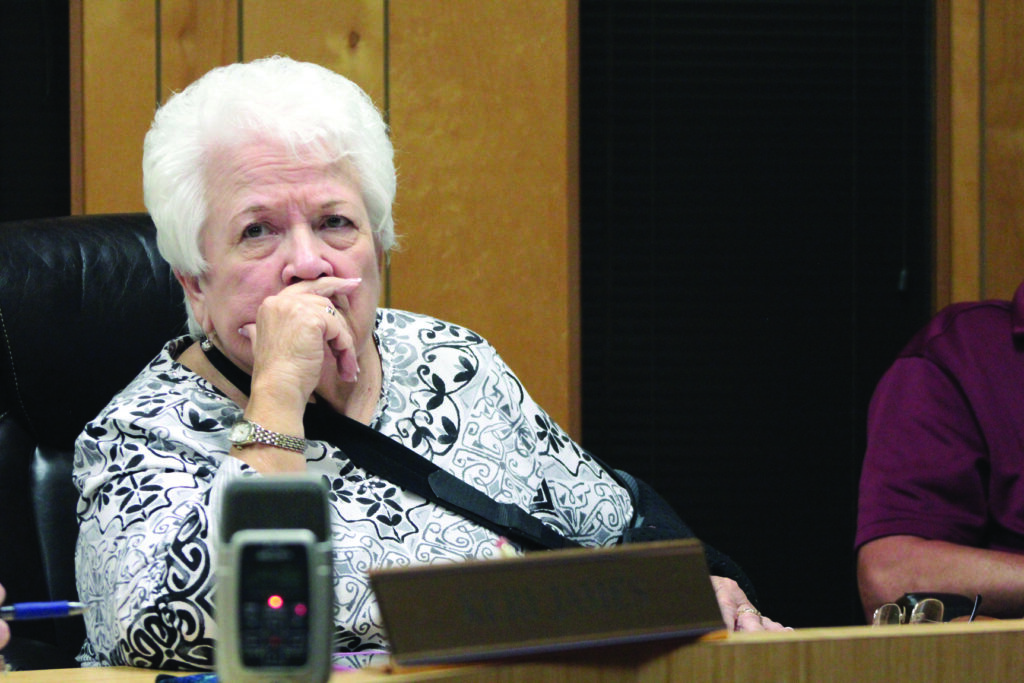
By Anton Riecher
A tax ratification election in November is being considered as part of the complicated resolution to a possible $2.5 million Devine ISD budget shortfall attributed to uncertainty of appraised property values (since so many were protested).
Going the tax ratification route would allow the district to regain any funding lost from tax collection by means of state aid, Superintendent Todd Grandjean told the board in a budget meeting Monday evening.
“With being able to go out for a TRE we would have a more assertive way to tell (voters) that this is going to happen,” he said.
Much of what was discussed hinges on a pending special session of the Texas Legislature called by Gov. Greg Abbott to further debate property tax relief and other issues.
The school board is also considering taking $717,961 from $1.1 million in remaining elementary and secondary school emergency relief (ESSER) funds to support budgeted salary increases.
As explained by the district’s chief financial officer Shannon Ramirez the proposed election revolves around the use of $689,624 in “golden pennies” or Tier II funding set aside by the school board in its formula to “compress” the tax rate. (Editor’s note: The state’s definition of “golden pennies” is stated as follows: Golden pennies provide tax revenue that is not subject to recapture by the State of Texas. Using golden pennies is an exercise of LOCAL control. Voters decide to access the pennies; all the revenue generated by them stays in the school district.
Compression refers to an intentional act to lower the tax rate which, in turn, reduces what taxpayers owe.
“When this passed we did a resolution to keep five of our pennies,” Ramirez said. “There are still some pennies out there that we could get back. It would go to the voters in November in the general election.”
Beside the golden pennies still available, the district could also reclaim nine copper or Tier I pennies held in reserve totaling $46,875, she said.
(Editor’s note: A Texas Tribune article on school finance explains “copper pennies” as “Any money a district raises with pennies seven through 17 — so-called “copper pennies” — is subject to recapture. If a district raises more than $31.95 of revenue per copper penny, that overage goes back to the state.)
“The golden pennies are the ones that we want more of,” Ramirez said. “We only have three to four but it would bring in over $680,000.”
She said she was unsure whether a tax ratification election to certify reclaiming the pennies and a bond election could be held on the same ballot, a reference to any attempt to remount the district’s failed $32.2 million bond issue in May.
Grandjean said tax relief measures still being considered by the Texas Legislature are expected to compress tax rates an additional 25 cents.
“We need four pennies of the 25 cents the state is about to give (taxpayers) back,” he said. “So in effect their tax rate would be compressed by 21 cents and the way we don’t lose funding is the money we generate and collect off our taxes we just get back from state aid. This is how they are making this all whole.”
Board president Nancy Pepper said that winning approval in the tax ratification election cannot be relied on. Using the budgeted ESSER funds to drive down the expected deficit would be more reliable.
“We can’t even know if this is going to pass,” Pepper said. “I would think we could use the ESSER funds and we would at least be a little bit better off.”
During Monday’s meeting Ramirez reviewed a host of positions at the various district campuses that have been filled, remain unfilled or have been dropped in the effort to further reduce the budget. Other cuts discussed included items such as a $40,000 tractor dropped in favor of several new buses.
Unbudgeted open positions at the high school include one FCS (family and consumer sciences) teacher and one ESSER teacher. High school openings that have remained unfilled all year and are not now in the budget include math teacher, a joint math teacher-coach, science teacher and webmaster teacher.
At the middle school, open positions for an ESL aide and an ESSER teacher/aide are not included in the budget. The elementary and intermediate schools have no unbudgeted positions, according to Ramirez’ PowerPoint presentation to the board.
The budget workshop was limited to discussion only with no action taken.
Ramirez told the board in May that questions over final appraised property values might make it impossible to meet budgeted salary increases for teachers. She cited property value protests, ADA (appraised district appraisals) losses and provisions in state tax law as contributing to the expected shortage.